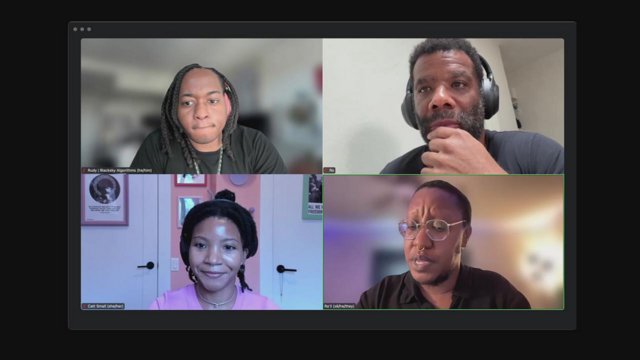Is Bad Behaviour Spoiling the Move from Big Tech?

Are political differences really to blame as people are pushed from alternative platforms?
One of the biggest conversations to come out of Bluesky's rise was centered around the platform being a 'left' alternative. This led to accusations of the platform being an echo chamber and, in some respects, I would agree.
However, as I said in my November blog post, I don't think that necessarily has to be a bad thing. For many people looking for an escape from the hatred and abuse they recieve on other platforms, an echo chamber sounds quite appealing.
After talking to a small group of fellow 'social web warriors', the conversation turned to rumours of a drop in Bluesky users due to political difference. The platform, as the 'left' alternative, has left some users feeling victimised for not being politically skewed far enough to one side. Moderate views have been attacked and users pushed out.
This is very similar to many people's experience on Mastodon.
I recently attended a talk on the future of the Black web experience. Apologies if I am misremembering , but I believe it was Rudy Fraser who said, "If you create a safe space for Black queer people, you've created a safe space."

So, where are we going wrong? How do we build the safe space without making political views the be all and end all?
Instead of answering the question, I realised the problem. The issue isn't politics, it's bad behaviour.
That goes for both sides of the fence. I have seen people being attacked for supporting LGBTQ+ rights but also attacked for not supporting LGBTQ+ rights the 'right' way. This is the same for almost every debatable topic. AI, immigration, war, trans rights, abortion, etc etc.
However, it's harder to call out impolite behaviour against people who you might agree with or understand the perspective of. It would be easy to misunderstand a correction of behaviour as an attack on the argument itself.
We need to undo this culture if we want alternatives to Big Tech to succeed. They need to be a nicer place to be. They need to have a welcoming and open culture. They need to be ready to listen. To learn.
Big Tech platforms are big because they were first. They didn't present alternatives. Everyone was there.
Now there are options. For that reason, we need to understand social media is now more than just the place where you share your thoughts or find gossip on the things you care about. It's a place you can choose to be. So we need to make people want to stay.
That includes a lot of things, all of which are interlinked. For example, a GUI revamp, better discovery, moderation tools. But, to me, the most important aspect we can improve is culture.
That's hard. You can't write a sexy line of code to fix it. But... maybe that's a good thing.
In the OSW space, there is a tendency for builders to have their heads stuck amongst the statements of the server, coming up for air only when there is a new feature to announce. This isn't really going to build a social platform well.
That's why so many people are excited about Bonfire. They're building an OSW platform that has put careful consideration into the human - the governance, the culture, the social aspects of the social platform. It may be a slow build, but that's because many would argue they are doing it right.
To change the culture of platforms like Mastodon or Bluesky is not something I know how to do.
I can suggest that users call out bad behaviour, that we become more tolerant of those we disagree with in our space, but I wonder if it is already too late?
People are horrible to each other on the internet. The anonymity, the pseudo-real world we are part of online, encourages our base desires to just 'say it'. That's no way to create a safe, welcoming, social space. No matter who you're caps-lock shouting at. At the end of the day, you're typing on a keyboard mate, no one can tell who is shouting loudest.
If we can rethink how we communicate online, encourage people to be more respectful, to be politer, maybe we can fix the echo chamber issue. Maybe we can fix the culture issue. Maybe, we could even fix the growing political divide.
Or, maybe I'm just too British for the loud American world of the internet.



